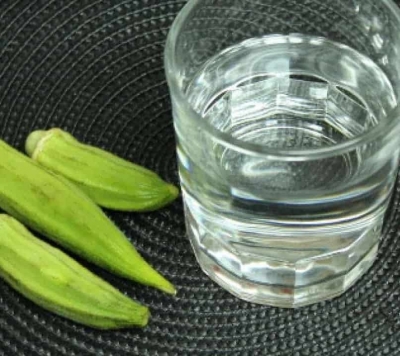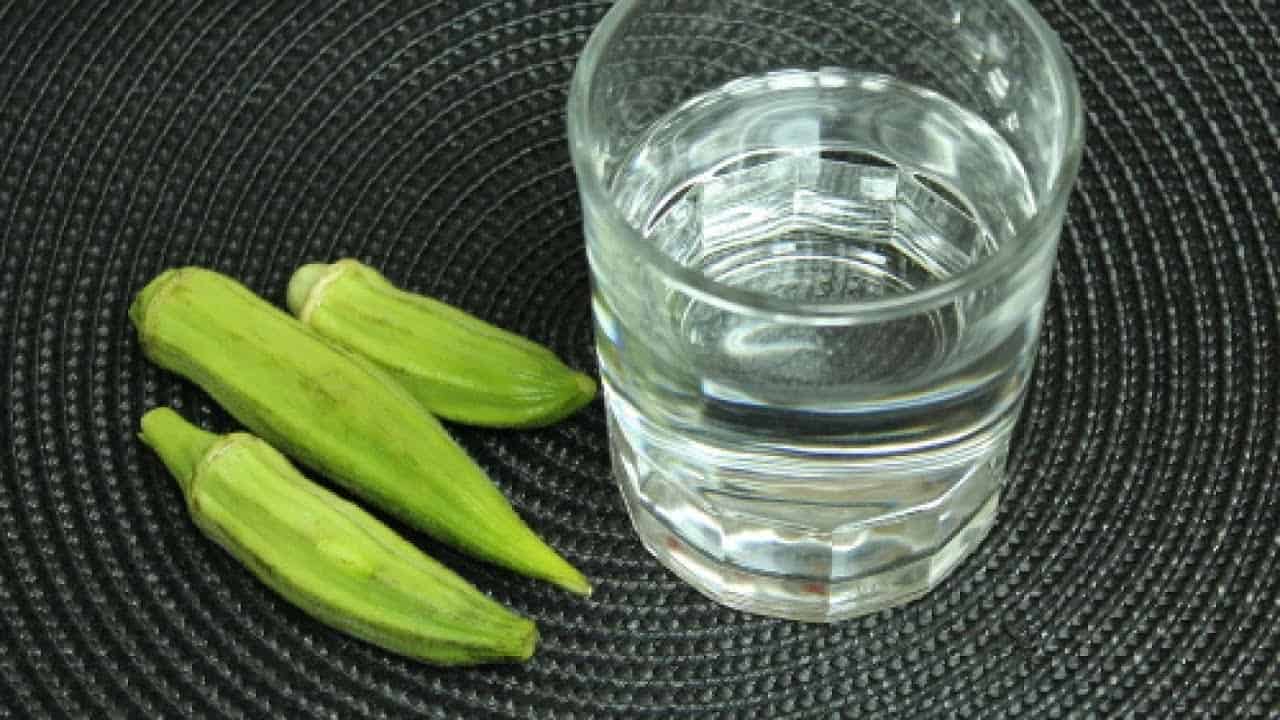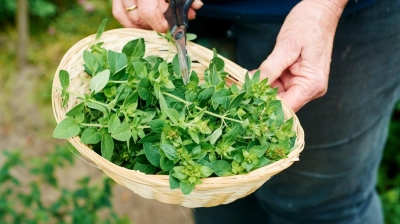
profile/7501IMG_20200105_084758_04.jpg
Jullyfeco

12 Benefits Of Drinking Okra Water You Need To Know About By Simi
~24.7 mins read
The okra plant or Abelmoschus esculentus is a flower-producing plant also commonly referred to as ‘lady’s fingers.’ In the Deep South of the USA, it is a vital ingredient in gumbo. It is called ‘Bhindi’ in Hindi and ‘Vendakkai’ in Tamil. It is widely used in cooking across various cultures. Okra is seldom eaten on its own but more often included in the recipes for gumbos, soups, etc., as it adds a unique flavor to the meal.
Okra’s exact origins are unknown, and although it is today widely grown in gardens around the world, it is best suited to cultivation in warm and temperate climates. The okra plant has many medicinal properties, and the most common way in which you can consume it is by drinking okra water. Okra water can be prepared by cutting off the ends of 4 okra pods. Next, place the two pods in the equivalent of 3-4 glasses of water and cover it with a plate.
A sticky liquid will ooze out of the pods as soon as they are slit. It is best to leave the pods to soak in the water overnight. After doing this, remove the pods from the water. Drink the okra water.
Make okra water daily in this way. Okra and by default okra water are an acquired taste. Okra contains a significant number of vitamins and minerals, most notably Vitamin C, Vitamin B2, Vitamin B6 and folic acid. It also includes calcium, potassium, magnesium, Vitamin A, and dietary fiber. Okra is rich in anti-oxidants.

ADVERTISEMENT
1. Okra water can assist the digestive process
One of the essential components of a healthy digestive system is sufficient fiber. Fiber is also referred to as roughage. It is the part of a plant that one cannot digest. However, it gets processed through the digestive system. As it moves through the system is provides several benefits.
The two types of dietary fiber you get are soluble and insoluble fiber. Soluble fiber dissolves on contact with water. It forms a gelatinous substance which slowly moves through the digestive system. Because it runs so slowly, it gives the digestive system time to absorb all the necessary nutrients from the food that you can consume. Insoluble fiber does not dissolve in contact with water but passes through the digestive system, aiding in the flow of the food and adding bulk to the stool. It increases the regularity of the bowel movement. Both types of fiber are essential for maintaining a healthy digestive system.
Many people who report minor problems with their digestive systems say great success with including more soluble and insoluble fiber in their diets. In the event of serious digestive system conditions, the use of fiber in the diet will be used in conjunction with medication prescribed by a medical healthcare professional.
Okra contains high levels of fiber which are essential for healthy digestion. Some of this fiber is passed to the water when the okra pod is cut open. So, you are improving your fiber intake by drinking okra water. One of the most significant shortcomings of the modern diet is a lack of fiber. A lack of fiber in the gut can cause conditions such as diverticulitis and hemorrhoids. To avoid this, you can get into the habit of drinking okra water daily.
ADVERTISEMENT


What is ventricular fibrillation?


ADVERTISEMENT
2. Okra water prevents constipation and diarrhea
Constipation is a painful condition that affects many people. When a person is constipated, their bowel movements are irregular, and sometimes the bowel doesn’t move for several days. It is caused when the stool remains in the bowel for too long. Because it isn’t moving, the water from the stool is absorbed by the colon, leaving the stool dehydrated and hard. In most instances, constipation isn’t caused directly by a particular condition or illness. In fact, its causes can sometimes be challenging to identify.
ADVERTISEMENT
One of the most essential, natural ways to treat constipation is to increase the amount of fiber in the diet. Both soluble and insoluble fiber is necessary at this stage as both are needed to help get the bowel moving again. The soluble fiber introduces more water into the stool that immediately softens it. Insoluble fiber adds bulk to the stool and speeds up its passage through the bowel. A regular intake of okra water will help to maintain proper fiber levels in the bowel and prevent constipation.
Diarrhea can have a sudden onset. There are multiple reasons that a person may contract diarrhea. It can have its roots in viral infection (such as rotavirus), bacterial infection (such as salmonella or food poisoning), parasitic infestation (such as tapeworm), intestinal disorders (such as Irritable Bowel Syndrome), medications (such as antibiotics), and food intolerance or allergies. When a person has diarrhea, the stool is loose because there is too much water in the colon.
ADVERTISEMENT
Diarrhea can be treated using soluble fiber. Increasing the intake of soluble fiber helps with the absorption of the excess water in the bowel that firms up a loose stool. Drinking okra water on a daily basis will ensure reasonable levels of soluble fiber in the bowel.In most cases, of mild constipation or diarrhea, additional fiber intake can remedy the situation quite quickly. However, if symptoms persist, you can consult a medical healthcare professional for treatment.
ADVERTISEMENT

ADVERTISEMENT
3. Okra water can help reduce cholesterol
Increasing the amount of soluble fiber in your diet can help to reduce the levels of low-density lipoprotein (LDL) cholesterol. This is the ‘bad cholesterol’ that causes clogging of the arteries and heart disease. Our bodies need cholesterol to build healthy cells, but an excess of cholesterol can be dangerous. High levels of cholesterol can be an inherited condition, but it is more often than not caused by a poor diet. This includes a diet that contains too many saturated fats and trans-fats.
ADVERTISEMENT
When a person has high cholesterol, the fatty deposits that it causes in the arteries and veins reduces their width and prevents blood from flowing through the heart and to the brain and the rest of the body. Decreased blood flow can cause the blood to become less oxygen-rich, which can render the heart unable to function optimally which may result in a heart attack. A decreased supply of blood to the brain can result in a stroke.
People with dangerously high levels of cholesterol are prescribed a cholesterol-lowering medication by a healthcare professional. However, we recommend that must make lifestyle changes such as engaging in more exercise and following a healthier diet. One of the ways they can do so is to drink okra water on a daily basis. This is because okra water is rich in soluble fiber.
ADVERTISEMENT
The reason that soluble fiber helps with cholesterol is that it reduces the rate of the absorption of cholesterol in the bloodstream, thereby preventing it from accumulating in the blood vessels. Lower levels of cholesterol reduce the chances of suffering from the coronary or cardiovascular disease.

ADVERTISEMENT
4. Okra water can improve your vision
Okra water contains good levels of Vitamin A and Beta-Carotene which are beneficial to the health of the eye and vision in general. Vitamin A is good for the eyes and the immune system. It is a fat-soluble vitamin. Beta-carotene is a carotenoid that helps give vegetables their attractive colors. It is good for one’s vision and general growth and development. Vitamin A is present in a variety of foods, but Beta-carotene is only present in vegetables.
ADVERTISEMENT
The reason Vitamin A is good for the health of the eye is that it helps to prevent macular degeneration. Macular degeneration is a condition that causes the deterioration of the macula. The macula is the small center of the retina that controls the levels of vision the eye has. When the macula deteriorates, it results in vision loss. This is one of the leading causes of vision loss across the more, with more cases of macular degeneration than glaucoma and cataracts.
Not only does Vitamin A help to combat macular degeneration, but it also acts against inflammation of the eye and protects it from developing infections. Beta-carotene converts into Vitamin A when it enters the body, so it performs many of the same functions as Vitamin A. Also, as a carotenoid, Beta-Carotene eliminates some of the stress that our eyes suffer as a result of exposure to blue light from both the sun and the screens of various electronic devices.
ADVERTISEMENT
With making a glass of okra water part of your daily routine, you are giving your body (and especially your eyes) a boost of Vitamin A and Beta-Carotene which is much needed to keep your eyes sharp and healthy.

ADVERTISEMENT
5. Okra water is an essential component of skin care and scar healing
The most beneficial vitamins for skin health are Vitamin D, Vitamin E, Vitamin C and Vitamin K. Okra does not contain much Vitamin D, although Vitamin D is usually supplied to the skin using exposure to sunlight. Vitamin C is an ingredient in most anti-aging products. That is because it is found in the epidermis (outer layer) of the skin as well as the dermis (inner layer) of the skin.
ADVERTISEMENT
Vitamin C is a powerful antioxidant which means that it can help to fight cancer. It also plays a role in the production of collagen which is the skin’s connective tissue. Collagen is vital as it helps to heal wounds on the skin and can prevent wrinkles as well. Vitamin E is also an antioxidant just like Vitamin C. It protects the skin when it gets exposed to harsh sunlight. This minimizes the damage done by harmful UV rays which can cause skin discoloration and wrinkles. Vitamin E is also known to help scars to heal and fade. It also keeps the skin moisturized.
Vitamin K is necessary to help the blood to clot when the body is wounded, bruised or burnt. Vitamin K can also help with skin conditions such as scars, discoloration, dark circles under the eyes, and stretch marks.
ADVERTISEMENT
The antioxidant properties of Vitamin A are also useful in terms of skin care as they destroy free radicals which cause harm to the skin. Any antioxidants detoxify the blood which can reduce acne and other skin diseases. All these critical skin care and scar healing vitamins are available in okra which is why including a daily glass of okra water to your diet can be beneficial to your skin.

ADVERTISEMENT
6. Okra water can give your immune system a boost
Vitamin C is well known for its immune-boosting properties. During the winter months, people frequently up their Vitamin C intake to prevent nasty colds and bouts of flu. The immune system works by continually sending out its soldiers to fight the war against various viruses and bacteria. The non-specific immune system which kicks into gear the minute some threat is detected is mainly made up of white blood cells. In fact, a white blood cell count is often used as a yardstick to determine the health of a person’s immune system.
ADVERTISEMENT
White blood cells fight off these undetermined attackers and prevent infections. Quite often, the body gets attacked, and the immune system responds, and the person isn’t even aware that there was a threat at all. The non-specific immune system will come into play when the non-specific immune system fails to defeat the invading virus or bacteria. There is a lot of Vitamin C in our white blood cells.
White blood cells in our respiratory tracts protect us against airborne diseases. They are very rich in Vitamin C. A high presence of Vitamin C is needed in the white blood cells for them to fight off any infections that threaten the body efficiently. The human body is unable to synthesize or make its Vitamin C supplies. That is why rely on our daily diets as well as supplements to give our bodies enough Vitamin C.
ADVERTISEMENT
On an average, an adult can have an intake of about 80mg of Vitamin C a day. With a proper diet of foods rich in Vitamin C, you can achieve this without the need to take supplements on an ongoing basis. As okra contains a high percentage of Vitamin C, okra water is the perfect addition to your daily diet to make sure your body is getting enough Vitamin C for the body’s army to do its job.
ADVERTISEMENT





